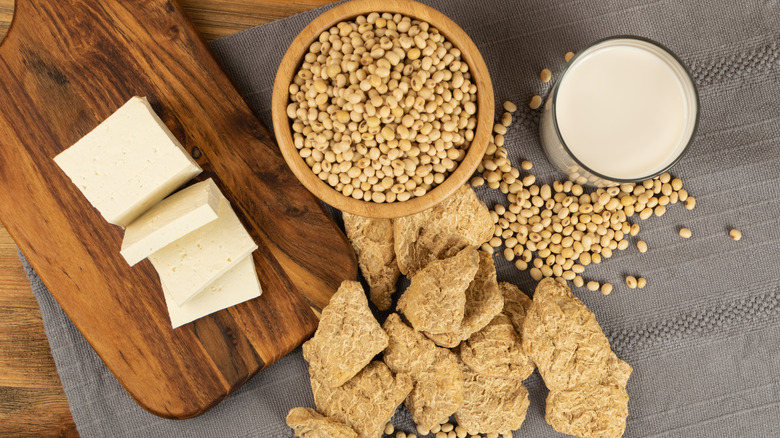A Cancer Nutritionist Debunks 3 Common Myths About Food And Cancer Risk
While regular consumption of certain food items may increase our risk for certain health conditions over time, there are a number of myths around what food items have been said to increase our risk for cancer. In an exclusive interview with Health Digest, Tuesday Hoelscher, Registered Dietitian (RD), clarifies misconceptions around these claims and sets the record straight as to how our diet can, or cannot, heighten our risk of cancer.
The first myth that Hoelscher addresses is the notion that sugar feeds cancer. She also notes how there is a widespread belief that eliminating sugar before or after cancer treatment has no effect on cancer size or risk of recurrence. "Sugar fuels every cell in the body, including cancer cells," Hoelscher states. "If you cut out all carbohydrates, your body will use protein and fat to fuel cells instead, including cancer cells. You cannot starve cancer cells without starving healthy cells," she explains.
She goes on to say how cutting all carbs out of one's diet can make it challenging to get all the nutrients our body needs. Instead, she emphasizes the importance of moderation over elimination. "If you are able to eat normally, reducing excess carbohydrates is appropriate by focusing on nutrient-dense carbohydrates such as fruit, whole grains like popcorn, brown rice, etc., and limiting concentrated sweets like candies, cakes, soda, and juice."
Does soy increase cancer risk?
Hoelscher next tackles the misconception that soy increases our risk of developing cancer, which also turns out to be a myth. "There were studies conducted on mice, where the myth originated that soy increases [the] risk of cancer," she states. "Mice given isoflavones (a component of soy) had higher estrogen levels and incidence of cancer." However, she explains that human studies did not yield these same results. "When human studies were later conducted, it was discovered that humans do not metabolize soy and isoflavones the same way."
Rather, she explains that soy may actually minimize cancer growth. "Isoflavones in soy have anti-estrogen properties in humans so they actually block the more potent natural estrogens from binding to the estrogen receptor," she states. "Soy has antioxidants and anti-inflammatory properties and may work in other ways to reduce cancer growth." Not only that, but Hoelscher notes that for cancer patients, soy may actually reduce the chances of cancer coming back. "Studies with a total of 9,000 breast cancer survivors showed that eating soy lowered risk of recurrence (regardless of if they were taking tamoxifen)," she shares.
Are organic foods really better for our health?
Although many people believe that pesticide-free, organic foods better protect against cancer than conventionally grown food items, Hoelscher clarifies that this is not necessarily the case. "Organic has no known benefit over conventionally grown (non-organic) foods," she tells Health Digest. "No studies show that people who eat organic have better health outcomes. There's no evidence to support that organic foods are more nutritious or reduce risk of cancer more than conventionally grown foods."
She explains that the U.S. Food and Drug Administration (FDA) regulates and tests pesticide levels in food and that the minimal amounts found in conventionally grown and organic foods are safe for human consumption. In fact, Hoelscher states that either option may have the potential to reduce cancer risk. She concludes, stating, "Organic and non-organic produce both contain antioxidants which protect against the type of free radical damage associated with cancer development, so the emphasis should be on consuming more produce and plant-based foods regardless of if they are organic or not."
To learn more about Tuesday Hoelscher, you can visit her website or connect with her on Instagram or Facebook.



